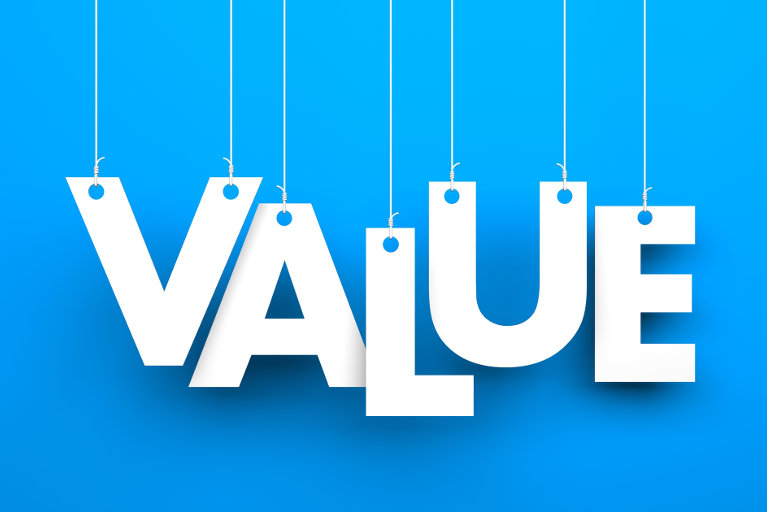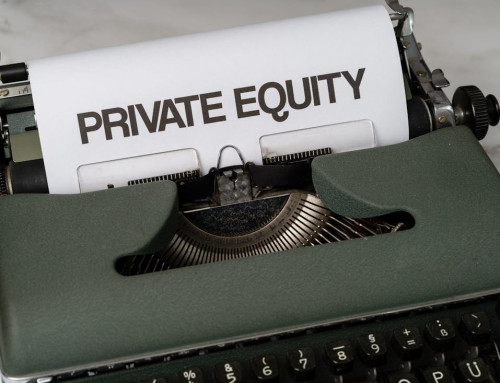One of the worst things you, a startup owner, can do is to leave an accurate valuation out of their pitch deck presentation. Nobody, not even your most beloved family member, is going to touch your business with a ten-foot pole without the numbers being in place.
The ‘accurate’ part of the startup valuation equation is very important. We’ve all likely seen enough episodes of Shark Tank to know what happens when at least one Shark points out the inaccuracies in your pitch; particularly if you don’t have the money side right.
Asking an investor to essentially throw caution to the wind and chuck a bunch of money into an unknown makes you look like a fool. Worse, if you’re grossly underestimating your company’s value, they may take worse advantage of you than they were already planning to!
How startup valuation works
This infographic from Funders and Founders lays it all for you:

3 components that build a solid business valuation
Let’s take a look at the top 3 components used to build a solid valuation that won’t get you laughed out of the presentation or severely taken advantage of by experienced money-makers:
1. Determine concrete revenue, customer numbers, signed contracts, and assets

Projections simply won’t be enough at this point for most investors, unless you can prove you’re tapping a yet unexploited market, or providing innovations that an existing (very large) customer-base is crying for.
Basically, unless you’ve got one heck of an app ready to shake up the market, or you and a team of cyberjunkies have built the API for a Facebook successor that’s a sure winner, you need actual sales to bring to the table.
Actual sales and large long-term contracts will add weight to the 3 and 5 year projections that are expected. So, if you have credible sales, say $100,000 to $200,000 dollars in the last year, that makes for big potential. With these meaty sales figures, you could easily multiply by several times your revenue as a believable valuation for the business as it sits.
Tangible sales equal credibility and most important, bargaining power, when it comes down to how much equity you should be parting with and how much cash the investor can justify putting into the business.
You’ll also want to include any assets the company has, if any at all, on the balance sheet. Amortization isn’t necessary, as investors will easily factor that in their head while you’re presenting.
2. Factor in the strength of the team

If this is your first startup, your business won’t hold the value in an investor’s eyes as that of an owner/team that has vast experience getting a business off the ground and growing it. This is just the reality of the situation you’re in. Venture capitalists in particular aren’t fond of dumping millions into your “business training.” Angels? Maybe. VCs? Chances are low.
Those experienced in business will want to add an addition $1-million to their valuation, provided again that you have actual sales to begin with. If you have no experience, but a rock star team of professionals at the helm of product production and sales, and/or have a huge breadth of contacts in your industry including proven marketing channels, you may add a half-million dollars onto your startup valuation without offending most investors.
3. Patents, trademarks, copyrights and proprietary knowledge – oh my!

The next element of a believable valuation is in patents, trademarks, copyrights and proprietary knowledge. Each promise investors that your products are well insulated from competition, thus turning your projections from a maybe to a definite possibility in their eyes.
Even provisional documents, showing you’ve applied for patents, trademarks, or copyrights – under the watchful eye of an appropriate attorney – give you the right to add up to another $1-million to your overall startup valuation without being looked at as a delusional fool.
Same for proprietary knowledge – ie., intellectual property. This means that you know something about making your product or providing your service that the competition can’t easily replicate. Experienced investors will consider adding a million to your valuation if you can show you know/have something that won’t be easy to reverse engineer (the “secret ingredient” if you will!)
Google is a great example of a business started and continually enhanced by intellectual property. First, they had (arguably) the best search engine back end; then they learned how to extract customer’s preferences from their data, allowing them to promise publishers guaranteed exposure for their ads to the consumers that are most susceptible to them.
Look at all the talk online trying to figure out just the company’s SEO ranking factors. Few people have any clue how Google does most of what they do, unless Matt Cutts decides to share. Now they’re using their vast collection of data to build self-driving cars!

photo credit: Google
Overview
- Real revenue adds credence to your projections and overall valuation, allowing you to multiply overall business value 5 to 10x your current yearly sales.
- Always include current tangible company assets to your pitch deck valuation.
- You and your team’s experience can add a million dollars in startup valuation, provided you have business and/or lots of industry experience.
- Include patents, trademarks, copyrights and proprietary knowledge to your valuation – even if they’re just provisional. Don’t lie though, you’ll be expected to prove what you claim!
One last tidbit of advice for a believable startup valuation lies in the market your company operates in. Billion dollar markets are ripe for sales, and will add weight to the investor’s value perception. If it’s highly viable, adding a million to your valuation is highly recommended. Particularly those boast growth rates in the double digits or higher.
The other factor about the market to consider when building a believable valuation is in comparing your business to others in the industry that have been valued recently by credible investors. If you can compare yourself, apples-to-apples, with other companies in your space, that may allow for further boosting of the valuation; even if the tangibles mentioned already aren’t in place in your business yet.






